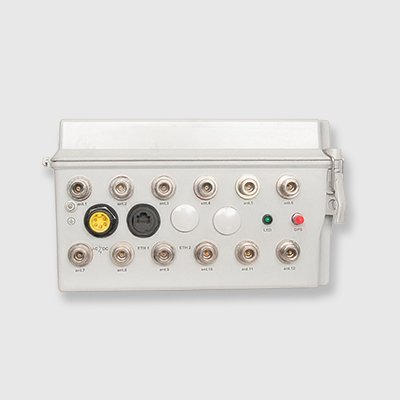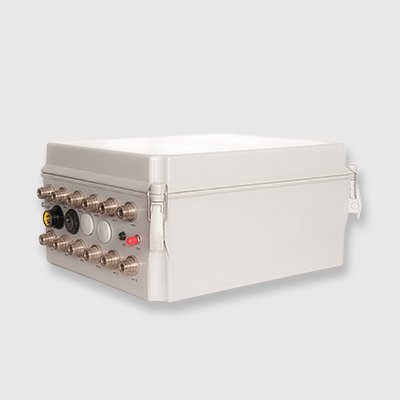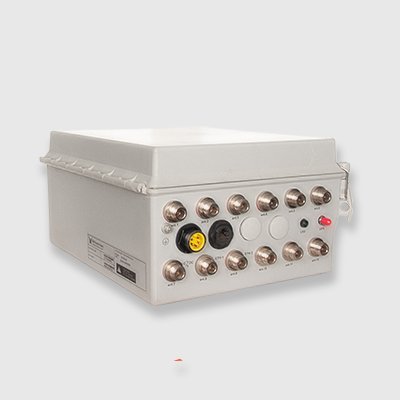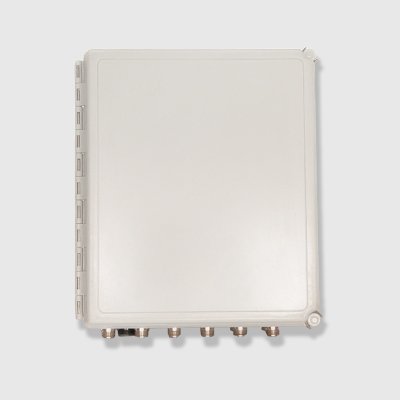Using up to 3×3 antennas, multiple spatial streams, and Multiple Input, Multiple Output (MIMO) techniques, wireless mesh infrastructure from Aeromesh Systems provides blistering fast throughput and a cost effective alternative approach to terrestrial-based networks such as Fiber. No matter what type of customer or vertical market, Aeromesh can exponentially reduce CapEx and OpEx, which is critical to today’s growing demands for network connectivity, retrofit or new expansion, and migration to new applications for enhanced services and efficiencies.




The Access/One® Network (A1N) OWS-5700 outdoor wireless solution with up to 3×3 MIMO provides blistering fast throughput at up to 1.3 Gbps data rate and is built for extreme capacity. It supports multiple radio frequencies (2.4 GHz, 4.9 GHz, 5 GHz) concurrently from each unit and is uniquely designed for simultaneous support of multiple applications, VLAN segmented networks, real-time and low latency voice, and high-resolution video applications and services.
Aeromesh’s foundational architecture from its inception has clearly distinct advantages over other wireless solutions. It is a true dedicated multi-radio Layer 2 switching wireless mesh backbone providing near full duplex RX and TX and it also combines multiple dedicated radios for client access all simultaneously from each unit. This provides exponentially greater sustainable throughput and lower latency over multiple hops compared to other A/G/N/AC solutions that employ a store and forward single radio for backhaul, which results in high latency and 50% or greater degradation of available bandwidth and high latency
Wireless Specifications
- Wireless Standards – A/G/N/AC/J/4.9
- Up to 2x2 MIMO OR 3x3 MIMO
- Frequency Bands: 802.11G/N
- 2.4 - 2.462 GHz (Americas, FCC)
- 2.4 - 2.472 GHz (Europe, ETSI)
- 2.4 - 2.497 GHz (Japan, MKK)
- 802.11A/N/AC
- 5.15 – 5.25 GHz
- 5.25 – 5.35 GHz
- 5.25 – 5.35 GHz
- 5.725 – 5.850 GHz
- 802.11A/J/4.9
- 4.94 – 4.99 GHz (USA)
- 4.92 – 5.08 GHz (Japan)
- Receiver Sensitivity Rates
- -61 dBm HT80 @MCS9
- -64 dBm HT40 @MCS9
- -70 dBm HT20 @MCS8
- -72 dBm HT40 @MCS7
- -74 dBm HT20 @MCS7
- -78 dBm @54 Mbps
- Transmit Power
- 26 dBm (802.11/G/A/N)
- 23 dBm (802.11A/J/4.9/AC)
- Modulations
- 802.11a: 16-QAM, QPSK, BPSK
- 802.11b: CCK, DQPSK, DBPSK
- 802.11g: 16-QAM, QPSK, BPSK
- 802.11n: 16-QAM, 64-QAM, QPSK, BPSK
- 802.11ac: 16-QAM, 64-QAM, 256-QAM, QPSK, BPSK
- Supported Channel Widths
- 5, 10, 20, 40,and 80 MHz
- Dynamic Frequency Selection
Network Interfaces
- GigE 10/100/1000-T Mbps Ethernet port
- IEEE 802.3, 802.3u compliant
- DHCP, DHCP Relay and Static IP
Electrical
- AC Input: 100-240 VAC, 50/60 Hz
- DC Input: 12V DC-24V DC
- AC Power Consumption: 40/60W (Typical, Varies with configuration)
Environmental
- Operating Temperature: -40°C to +55°C
- Storage Temperature: -40°C to +85°C
- Humidity: 10% to 90% non-condensing
- Weather Rating: IP-67 weather tight
- Wind Survivability: >165 mph
- Wind Load (165 mph): <1024 newtons
Physical
- Dimension: 12"H x 10"W x 6"D
- Weight: 5.5Kg
- NEMA 4X rated, IP-67
- N-Type Female Connectors
- Weatherproof Power Connector
- Weatherproof Ethernet Connectors
- Wall, Pole, and Adjustable mount
Features
- 16 BSSIDs per radio
- Up to 4096 VLANs per radio
- Single or Multi-VLANs per BSSID
- Multi-Radios for dedicated mesh backhaul and client access
- Load Balancing and Auto Failover
- Session-Persistent Mobility
- Location Based Services
- Multicast Efficiency Handling
- Dynamic Auto Channel Select
- Weak Client Trigger Handling
- Power Save Packet Queuing
- Clear Channel Assessment
- Integrated Performance Test Utility
Traffic Prioritization & QoS
- 802.11e WMM1
- Class of Service 802.1p
- 802.1q VLAN Queuing
- DiffServ1
- VLAN, TOS Bit, IP Protocol, UDP/TCP Ports
Security & Encryption
- Authentication
- 802.1x support, RADIUS – Up to 2 RADIUS servers per BSSID
- RADIUS Client Functionality
- EAP-MD5, TLS, TTLS, PEAP
- WPA, WPA2, PSK
- Access Control Lists
- Strix Access/One
- Encryption
- ackhaul: AES CCM
- Client: AES, TKIP and WEP
- 64, 128bit
- Password Encryption
- Trusted Inventory Authentication
- Trusted IP Management Access
- RADIUS Management User Accounts
- Mesh-wide Layer 2 Traffic Isolation
- Rogue Device Detection
- SSID Suppression
Features
- 16 BSSIDs per radio
- Up to 4096 VLANs per radio
- Single or Multi-VLANs per BSSID
- Multi-Radios for dedicated mesh backhaul and client access
- Load Balancing and Auto Failover
- Session-Persistent Mobility
- Location Based Services
- Multicast Efficiency Handling
- Dynamic Auto Channel Select
- Weak Client Trigger Handling
- Power Save Packet Queuing
- Clear Channel Assessment
- Integrated Performance Test Utility